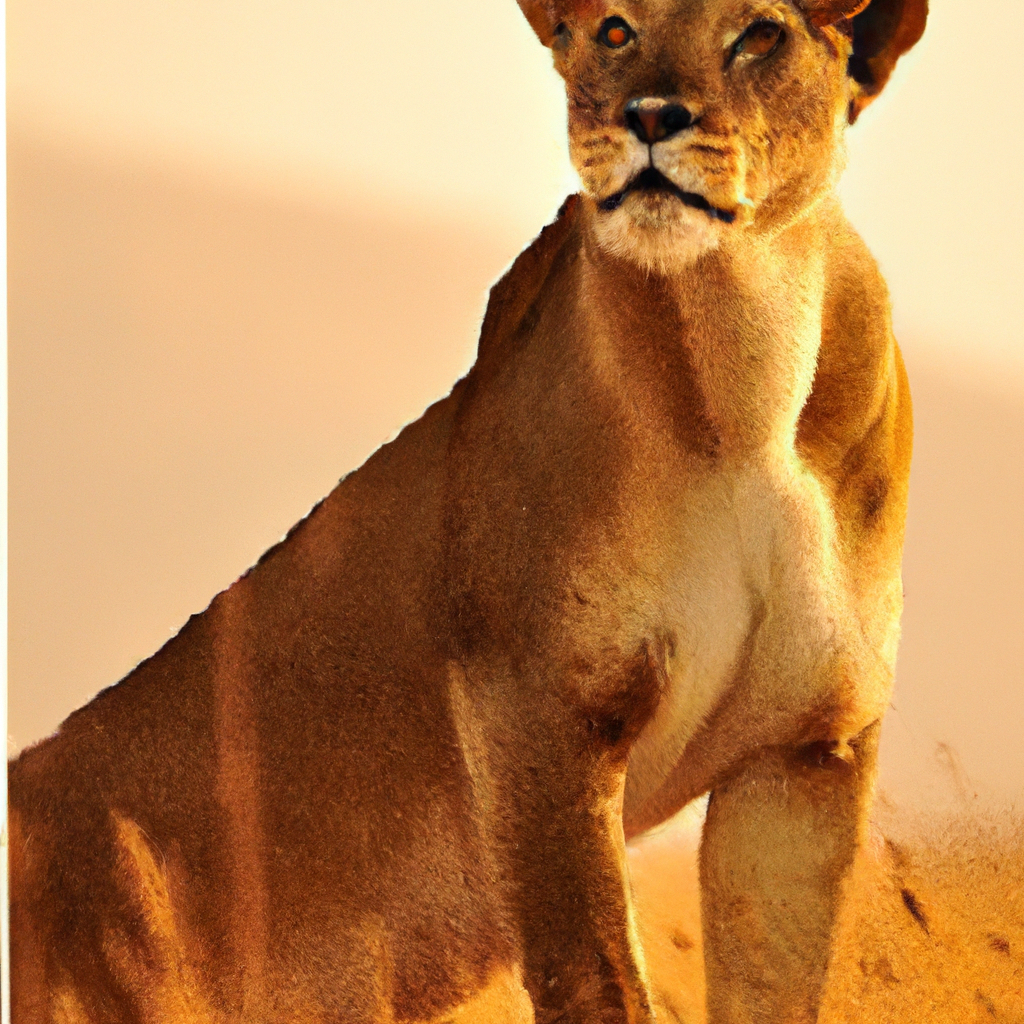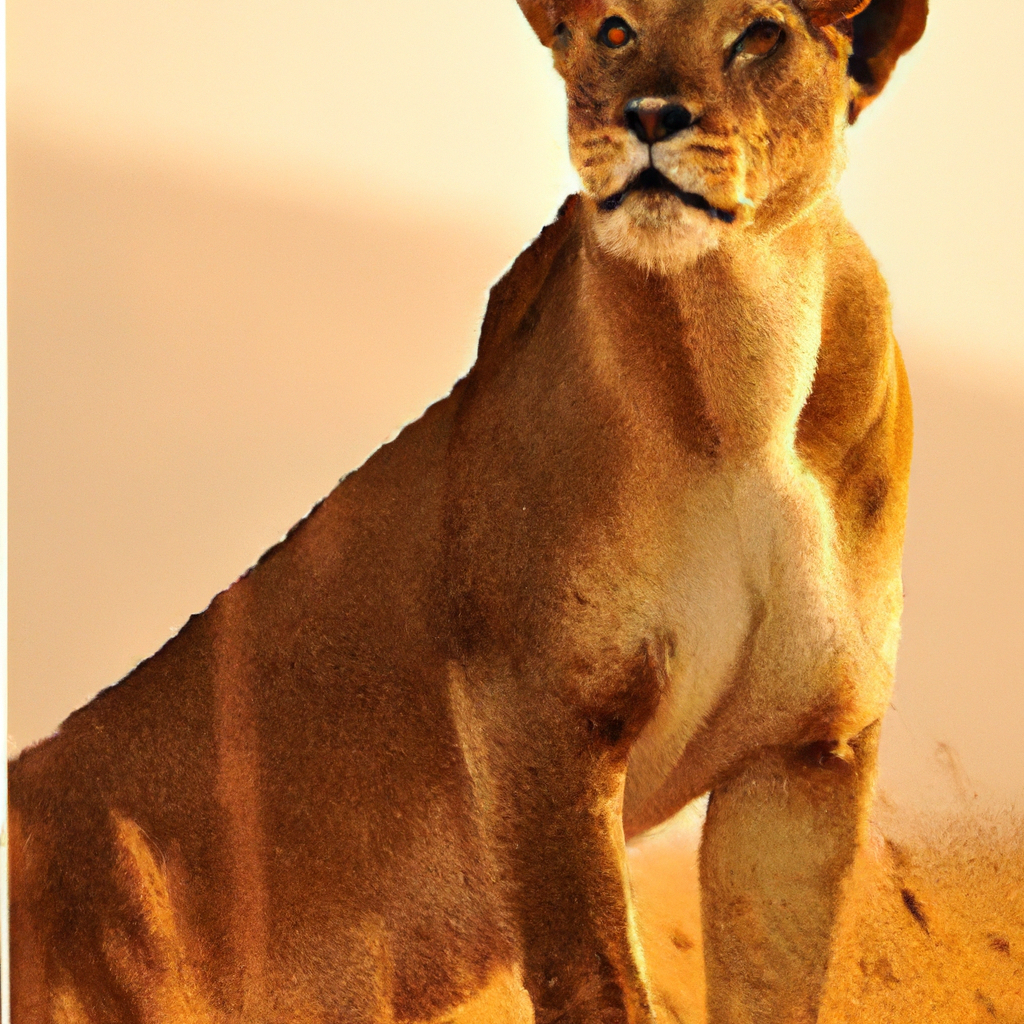In this article titled “Lion Conservation Q&A: Your Questions Answered By Experts,” we bring together a panel of knowledgeable individuals to address your burning inquiries about lion conservation. Dive into this engaging Q&A session as experts shed light on the challenges faced by these majestic animals, their vital role in maintaining ecosystem balance, and the crucial efforts being undertaken to protect their dwindling populations. Get ready to have your curiosity satisfied and gain a deeper understanding of the ongoing struggle to ensure the survival of these magnificent creatures.
Why are lions important for ecosystem balance?
Lions play a crucial role in maintaining ecosystem balance. As apex predators, they help regulate the population of prey species, such as herbivores, which in turn impacts vegetation and overall biodiversity. By preying on the weaker individuals, lions ensure that only the fittest survive, promoting the health and genetic diversity of prey populations. This balancing act is essential for a healthy and functioning ecosystem.
How do lions contribute to the biodiversity of their habitats?
In addition to regulating prey populations, lions also have indirect effects on the ecosystem. Their presence helps shape the behavior and distribution of other species, such as scavengers and smaller predators. For example, when lions make a kill, they create an abundance of food that benefits scavengers like vultures and hyenas. This interaction creates a web of interdependencies among different species, ultimately contributing to the overall biodiversity of their habitats.
What are the main threats to lions in the wild?
Lions face numerous threats that endanger their survival in the wild. Habitat loss and fragmentation, driven by human activities such as agriculture, urbanization, and infrastructure development, pose one of the most significant threats. As their habitats are reduced, lions are forced into smaller areas, leading to increased competition for resources and higher potential for conflict with humans.
How does poaching affect lion populations?
Poaching, mainly driven by the demand for lion bones and body parts in traditional medicine and illegal wildlife trade, poses a severe threat to lion populations. Tragically, lions are often victims of indiscriminate snaring and poisoning, intended for other species. This, coupled with the illegal hunting of lions for trophies, has caused a considerable decline in their numbers, especially in certain African regions.
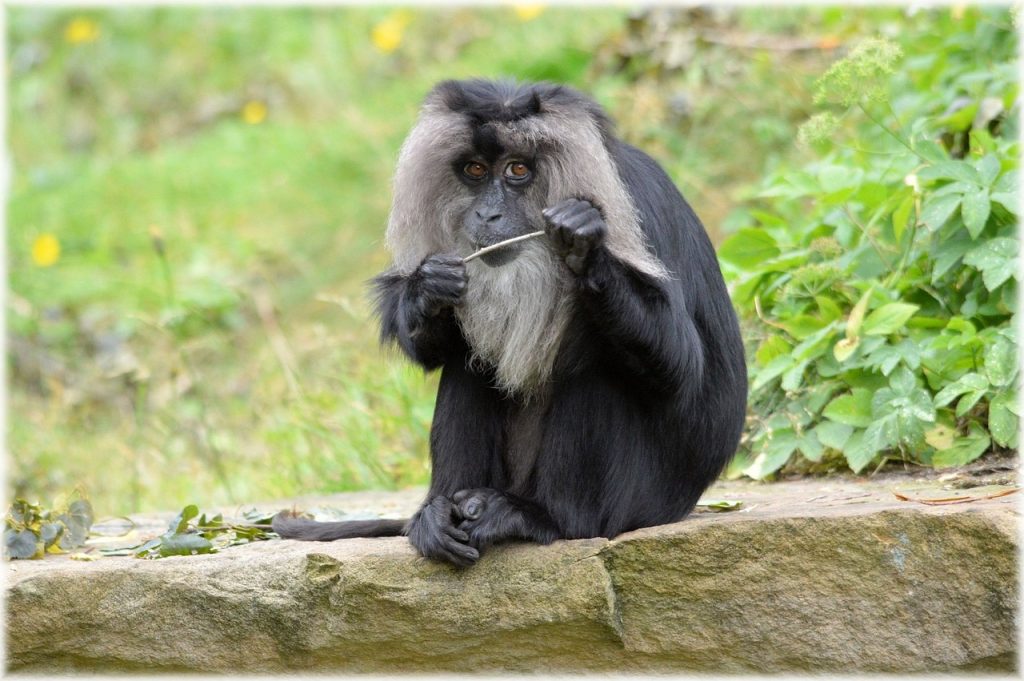
How does habitat loss affect lion populations?
Habitat loss has a profound impact on lion populations. As their natural habitats are converted for agricultural purposes or urban development, lions are left with smaller areas to roam and find food. This loss of suitable habitat leads to increased competition among lions, as well as conflict with humans and livestock. It also fragments populations, making it harder for lions to find suitable mates and decreasing genetic diversity, which can ultimately impact their long-term survival.
How can habitat fragmentation be mitigated?
To mitigate the effects of habitat fragmentation, conservation organizations and local communities can work together to create wildlife corridors and protected areas. These designated spaces allow lions and other wildlife to move freely between fragmented habitats, ensuring genetic diversity and maintaining functional ecosystems. Additionally, promoting sustainable land-use practices, such as agroforestry and conservation-friendly farming methods, can help reduce habitat loss and provide alternative livelihoods for local communities.
What is human-lion conflict and how does it impact conservation?
Human-lion conflict arises when lions come into contact with human settlements and livestock. As lions lose their natural habitats due to habitat loss, they are forced to venture into areas occupied by humans in search of food. This often leads to conflicts, as lions may kill livestock or even pose a threat to human safety. Unfortunately, these conflicts often result in retaliatory killings or captures, further contributing to the decline of lion populations.
What measures can be taken to mitigate human-lion conflict?
To mitigate human-lion conflict, various strategies can be employed. One approach is the implementation of community-based conservation initiatives, where local communities are actively involved in decision-making processes and receive benefits from conservation efforts. This can include compensation for livestock losses, predator-proof enclosures for their livestock, and sustainable tourism opportunities that provide alternative sources of income. Additionally, education and awareness programs can help foster better understanding between humans and lions, while promoting coexistence and reducing conflict.
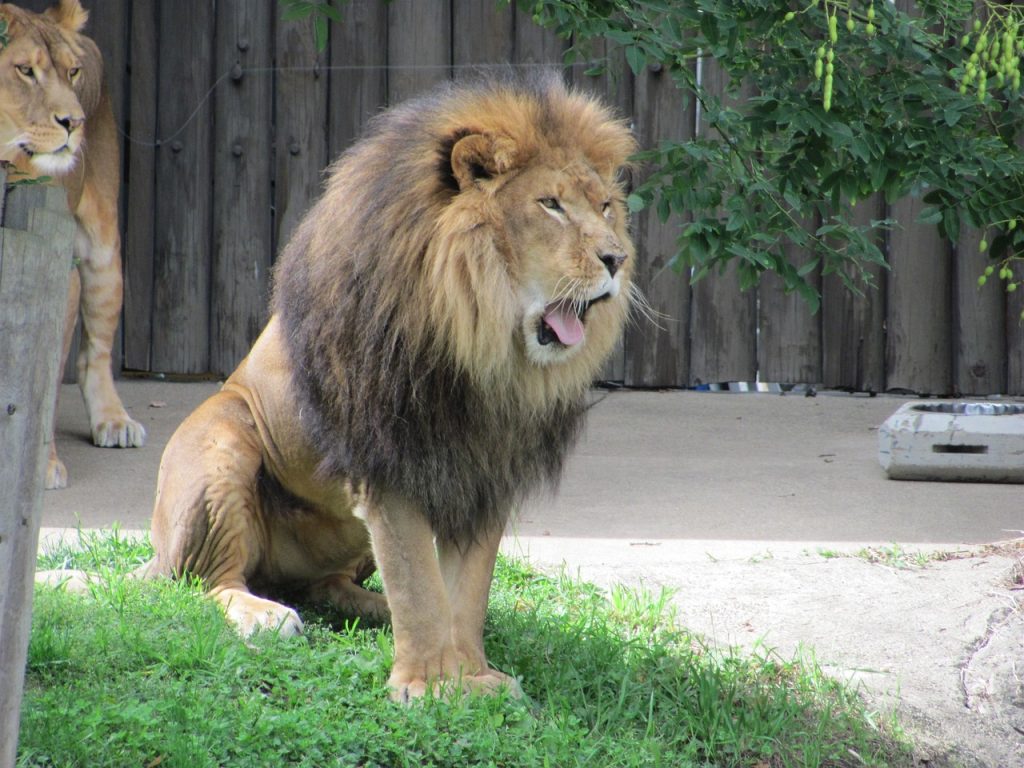
How are conservation organizations working to protect lions?
Conservation organizations play a vital role in protecting lions. They work on various fronts, conducting research to better understand lion behaviors and populations, implementing anti-poaching measures to combat illegal wildlife trade, and advocating for stronger legal protections for lions and their habitats. These organizations also collaborate with local communities, governments, and other stakeholders to develop and implement conservation plans and initiatives. Funding for these efforts often comes from international donors, grants, and partnerships with private organizations.
What innovative conservation methods are being employed?
In recent years, conservation organizations have started employing innovative methods to protect lions. One such method is the use of technology, such as GPS tracking collars, camera traps, and drones, to monitor lion movements, study their behavior, and identify potential threats. This data-driven approach helps inform conservation strategies and allows for targeted interventions, such as preemptive measures to prevent human-lion conflicts or identify and dismantle illegal wildlife trade networks.
What is the role of local communities in lion conservation?
Local communities play a critical role in lion conservation efforts. They are the stewards of the land and often have valuable traditional knowledge about lions and their habitats. Engaging and involving local communities in conservation initiatives not only promotes a sense of ownership and empowerment but also ensures that conservation efforts are culturally appropriate and sustainable in the long term. Furthermore, by providing alternative livelihood opportunities, such as eco-tourism or sustainable agriculture, local communities become motivated to protect and coexist with lions.
How do conservation organizations collaborate with local communities?
Conservation organizations collaborate with local communities through various approaches. This can include training and capacity-building programs to enhance skills and knowledge related to conservation, establishing community-led conservation committees for decision-making, and implementing initiatives that directly benefit local communities, such as healthcare or educational support. By fostering positive relationships and ensuring that local communities are key stakeholders in the conservation process, the chances of long-term success are greatly increased.
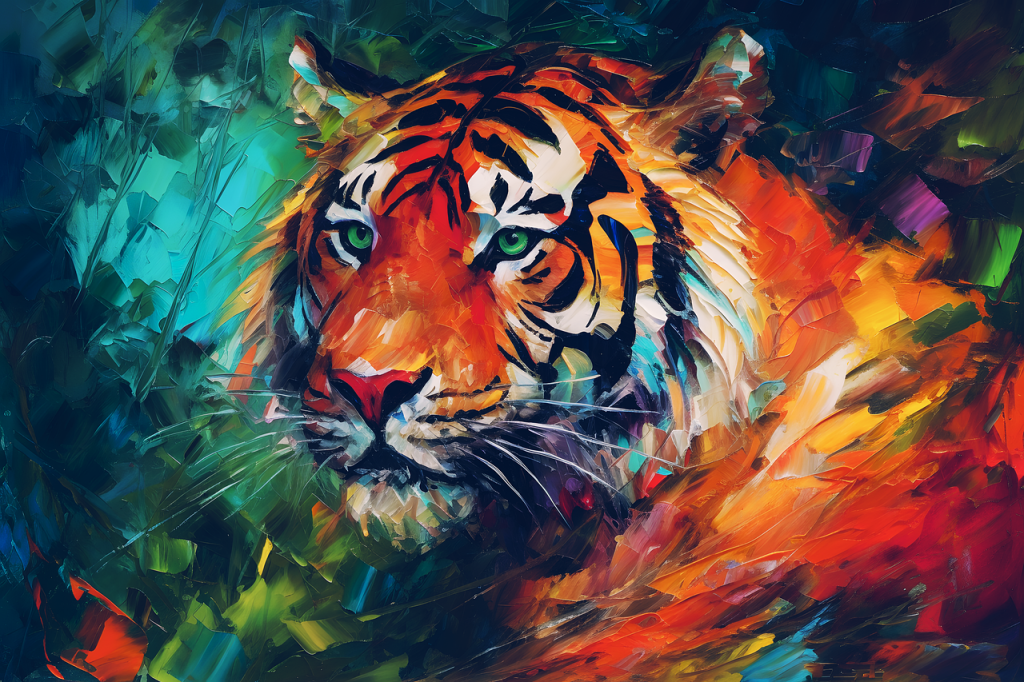
How can tourists support lion conservation efforts?
Tourists can play a significant role in supporting lion conservation efforts. By choosing responsible and ethical tourism operators that prioritize conservation and community engagement, tourists can ensure that their visit benefits local communities and contributes to lion conservation. This can include staying in eco-lodges or community-owned accommodations, participating in wildlife monitoring programs, or supporting local crafts and products that provide income for communities. Additionally, tourists can educate themselves and others about the importance of lion conservation and advocate for stronger protections for lions in their home countries.
What should tourists avoid to prevent harm to lions?
Tourists should avoid engaging in activities that may harm lions or their habitats. This includes avoiding interactions with captive lions, such as cub petting or walking with lions, as these activities often contribute to the unethical captive breeding industry and have negative welfare implications for the animals. Furthermore, tourists should respect guidelines and regulations in national parks and protected areas, such as staying on designated paths, maintaining a safe distance from wildlife, and never feeding or disturbing the animals. Responsible tourism choices can make a significant difference in supporting legitimate conservation efforts.
Are there successful examples of lion conservation initiatives?
Yes, there are successful examples of lion conservation initiatives across Africa. One such example is the Niassa Lion Project in Mozambique, which has effectively reduced human-lion conflict through community-based conservation programs. By implementing measures such as livestock guarding dogs and educating local communities on coexistence, the project has seen a decrease in retaliatory killings and an increase in tolerance towards lions. In Kenya, the Maasai Mara Lion Project has successfully worked with local communities to monitor and protect lions, resulting in a stabilization of lion populations in the region. These initiatives demonstrate that by engaging and involving local communities, lion conservation can be successful.
What can be learned from successful initiatives?
Successful lion conservation initiatives highlight the importance of community engagement, collaboration, and adaptive management. When local communities are empowered and actively involved, conservation efforts are more likely to be effective and sustainable. Additionally, flexibility and the ability to adapt strategies based on feedback and new information are crucial. Conservation organizations can learn from these success stories and replicate the approaches that have proven to yield positive results for lions and their habitats.
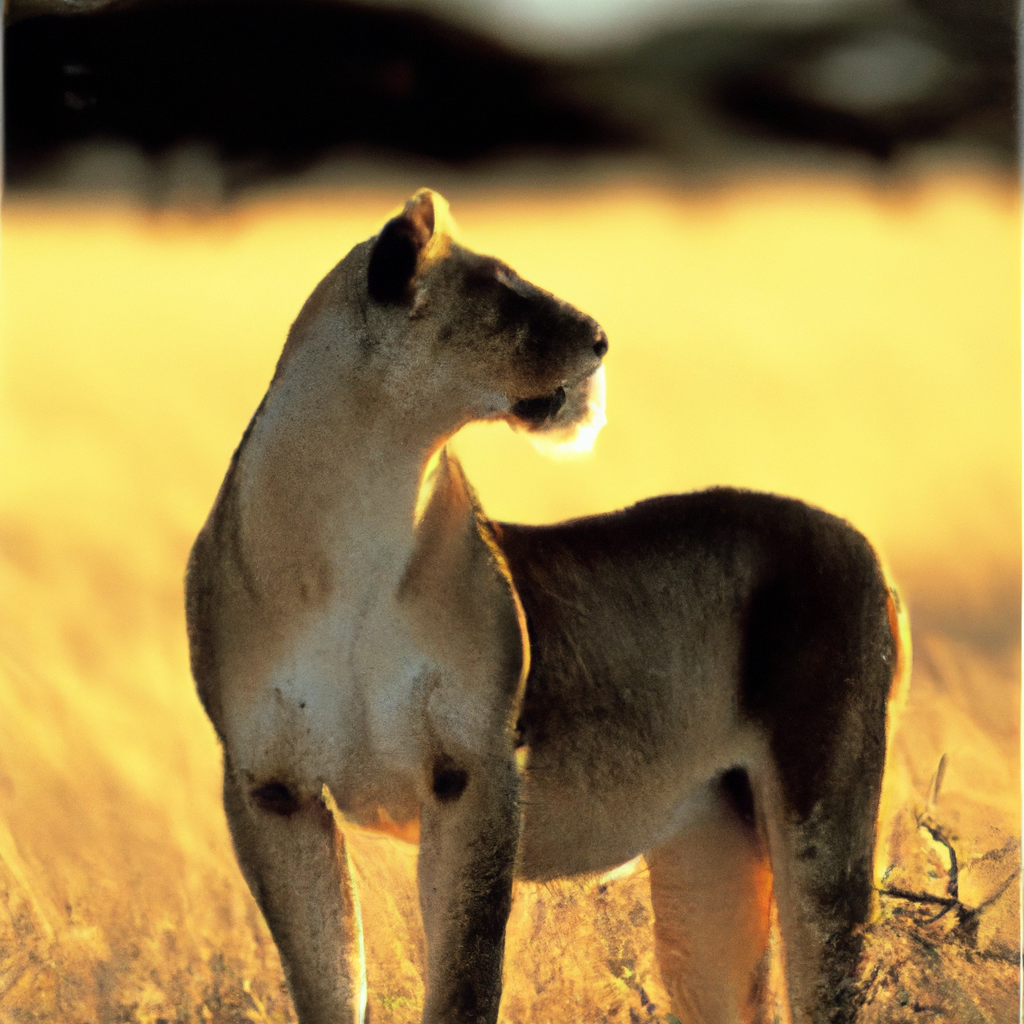
What is the impact of trophy hunting on lion populations?
The impact of trophy hunting on lion populations is a contentious issue. Proponents argue that it can provide sustainable funding for conservation efforts and incentivize local communities to protect lions and their habitats. However, critics argue that trophy hunting leads to the unsustainable killing of lions, particularly if regulations and quotas are not effectively enforced. The practice also raises ethical concerns, as it involves hunting animals for sport and collecting their body parts as trophies. Ultimately, the impact of trophy hunting on lion populations depends on robust regulations, effective enforcement, and transparent revenue allocation for conservation purposes.
What is the current stance on trophy hunting?
The current stance on trophy hunting varies among countries and conservation organizations. Some African countries, such as Botswana and Kenya, have banned trophy hunting altogether, while others, like Namibia and South Africa, have implemented strict regulations and quotas. Conservation organizations have differing opinions, with some advocating for a complete ban on trophy hunting, while others support regulated and well-managed hunting as a conservation tool. The debate on trophy hunting remains complex, and ongoing research and dialogue are necessary to reach evidence-based and balanced conclusions.
What can individuals do to contribute to lion conservation efforts?
Individuals can contribute to lion conservation efforts in several ways. One of the most impactful actions is to support reputable conservation organizations financially through donations or becoming a member. These funds can be used to implement conservation projects, conduct research, and support community programs. Additionally, individuals can educate themselves and others about the importance of lion conservation, sharing information through social media or participating in awareness campaigns. Being a conscious consumer and making responsible tourism choices also contribute to lion conservation by supporting ethical operators and sustainable practices. Finally, individuals can advocate for stronger legal protections for lions and their habitats, urging policymakers to prioritize conservation and sustainability in land-use decisions. Every small action can make a difference in the collective effort to safeguard the future of lions.
